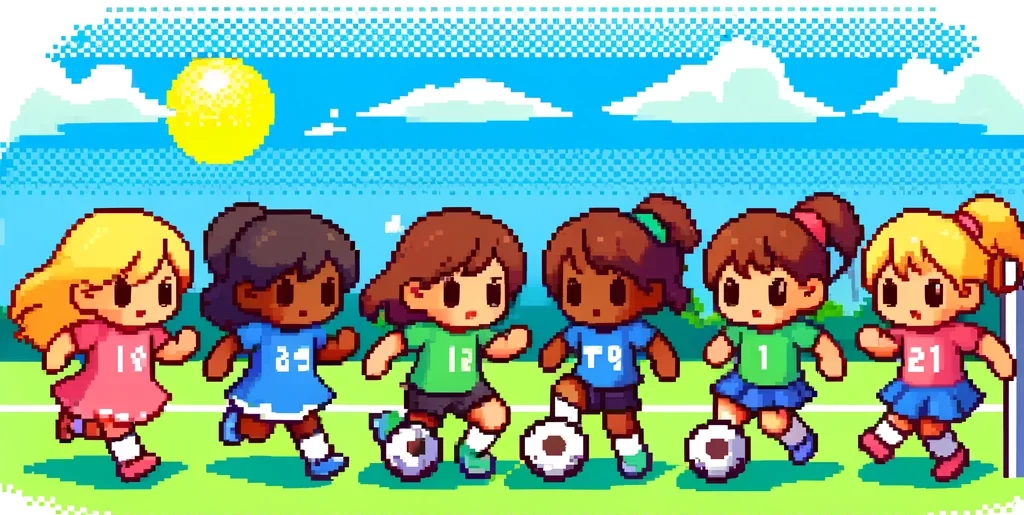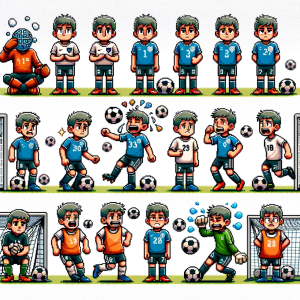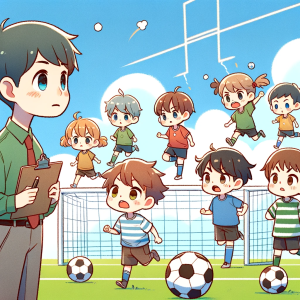
The Snowball Effect of Grit
When we think of soccer stars like Lionel Messi or Cristiano Ronaldo, what often comes to mind is their incredible talent. But beyond raw talent, there’s a hidden ingredient that’s pivotal to their success: grit. A recent study titled “How small differences grow over time – the snowball effect of grit on practice in sport” explores how this quality shapes the practice habits and eventual success of elite youth soccer players. This article, published in the International Journal of Sport and Exercise Psychology, delves into the profound impact of grit on practice accumulation and player development.
What is Grit?
Grit is a psychological trait defined by passion and perseverance towards long-term goals. It’s about maintaining consistent effort and interest over years despite challenges and setbacks. In the context of soccer, grit could mean the difference between a player who practices day after day and one who gives up when the going gets tough.
The Study: Overview and Findings
Conducted with 388 elite youth soccer players in Australia, the study tracked their practice habits from ages 8 to 15. The researchers found that players with higher grit scores engaged in more practice from an early age and continued to do so consistently over the years. This consistent practice accumulation, driven by grit, leads to significant skill development and expertise in the sport.
The Snowball Effect
One of the key findings of the study is the “snowball effect.” Small differences in practice hours between grittier and less gritty players at the start of their training careers gradually grow into significant disparities over time. By age 15, these differences are pronounced, with grittier players having logged thousands more hours of practice. This additional practice not only enhances their skills but also their confidence and competitive edge.
Grit’s Two Components
The study also differentiates between the two components of grit: Consistency of Interest and Perseverance of Effort. Consistency of Interest drives the initial engagement and sustained interest in soccer, while Perseverance of Effort becomes crucial as players face more intensive and demanding training regimens. Consistently interested players are more likely to engage in regular practice, while those with high perseverance push through the tough, repetitive drills essential for skill mastery.
Implications for Soccer Coaching
The implications of these findings for soccer coaching and player development are significant:
- Early Identification and Encouragement: Coaches should look for signs of grit in young players and encourage its development. Recognizing and fostering both components of grit can help maintain high levels of engagement and effort.
- Tailored Training Programs: Training programs should be designed to sustain interest and challenge players appropriately. Balancing enjoyable activities with skill-intensive drills can help maintain a player’s consistency of interest while developing perseverance.
- Support Systems: Providing a supportive environment that includes mentorship and positive reinforcement can help young players navigate challenges and setbacks, reinforcing their perseverance.
Encouraging Grit in Young Athletes
To cultivate grit in young soccer players, coaches, and parents can implement several strategies:
- Set Long-Term Goals: Encourage players to set and commit to long-term goals rather than focusing solely on short-term achievements.
- Embrace Challenges: Teach players to view challenges and failures as opportunities to learn and grow, rather than setbacks.
- Foster Passion: Help players discover and nurture their passion for soccer, ensuring they remain motivated and interested over the long haul.
- Build a Routine: Encourage regular practice habits from a young age, emphasizing the importance of consistency in skill development.
How do you cultivate grit? Let us know in the comments!
- Have you noticed the role of grit in your own or your child’s sports journey? How has consistency and perseverance played a part in skill development?
- What strategies have you found effective in maintaining long-term interest and effort in young athletes?
Conclusion
The study highlights the critical role of grit in the development of soccer expertise. By understanding and fostering grit in young players, coaches and parents can help them achieve their full potential. Small, consistent efforts, driven by passion and perseverance, indeed snowball into significant achievements over time.
Advance Your Soccer Knowledge:
Join the elite circle of soccer aficionados who appreciate the game beyond the field. ‘This Week in Soccer’ bridges the gap between complex soccer analytics and practical application. By subscribing to our newsletter, you’ll gain access to exclusive content, infographics, and forums that will enrich your understanding and love for soccer. Embrace the science and strategy of soccer today. Subscribe and transform your perspective!
About the Author
Jon Scaccia is a youth soccer coach and translational scientist. He has worked with the Exeter United Soccer Club for over five years, focusing on U5 development. In his day job, he works in data evaluation and implementation science.



